PNY CS3040 1TB Performance Testing
We are moving towards using larger test sizes on our benchmarks, but on several tests, we also used the smaller default-test sizes. This allows us to see the difference between lighter and heavier workloads.
CrystalDiskMark 7.0.0 x64
CrystalDiskMark is used as a basic starting point for benchmarks as it is something commonly run by end-users as a sanity check.
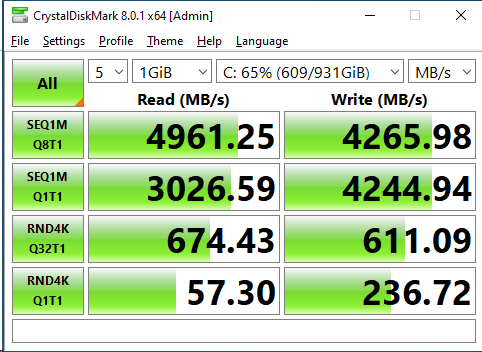
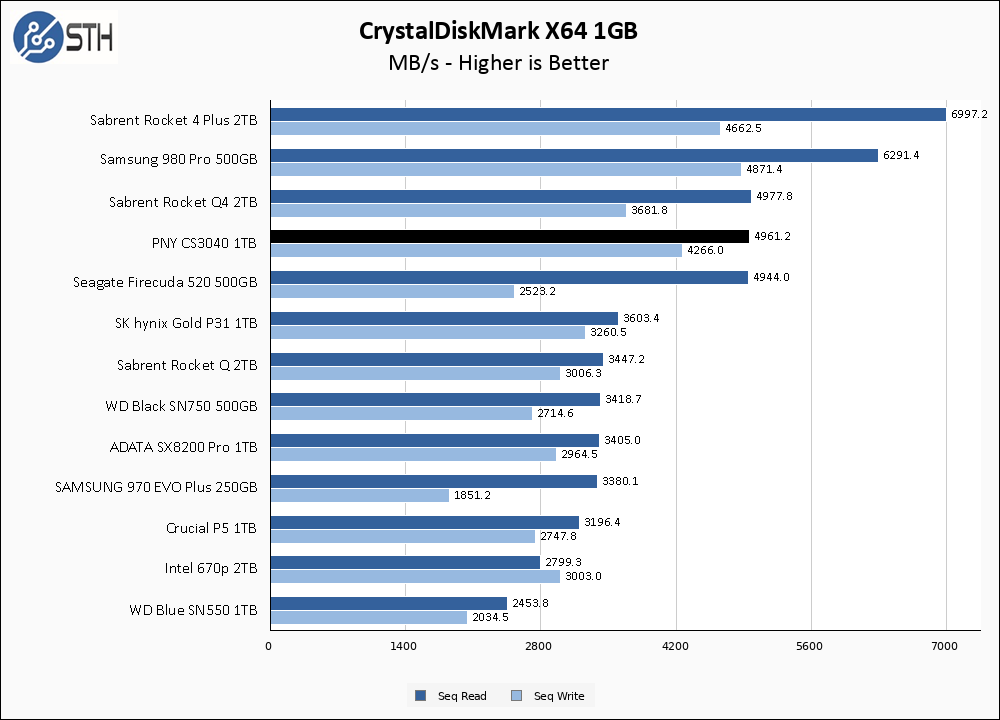
On our first benchmark, the PNY CS3040 1TB manages to both please and disappoint; while it performs very well overall, it does fall a bit short of its rated 5600MB/s sequential read speeds. Write performance on the other hand is right in line with the 4300MB/s rating, which is good to see. The only drives to beat it are the “second generation” PCIe 4.0 drives; the Samsung 980 Pro 500GB and Sabrent’s performance flagship Rocket 4 Plus. Interesting comparison points for readers would be the Sabrent Rocket Q4 2TB and the Seagate Firecuda 520 500GB, both of which share the same controller but obviously different NAND; none of them reached 5600MB/s read speeds either.
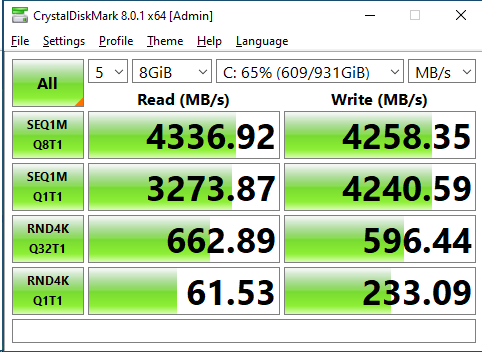
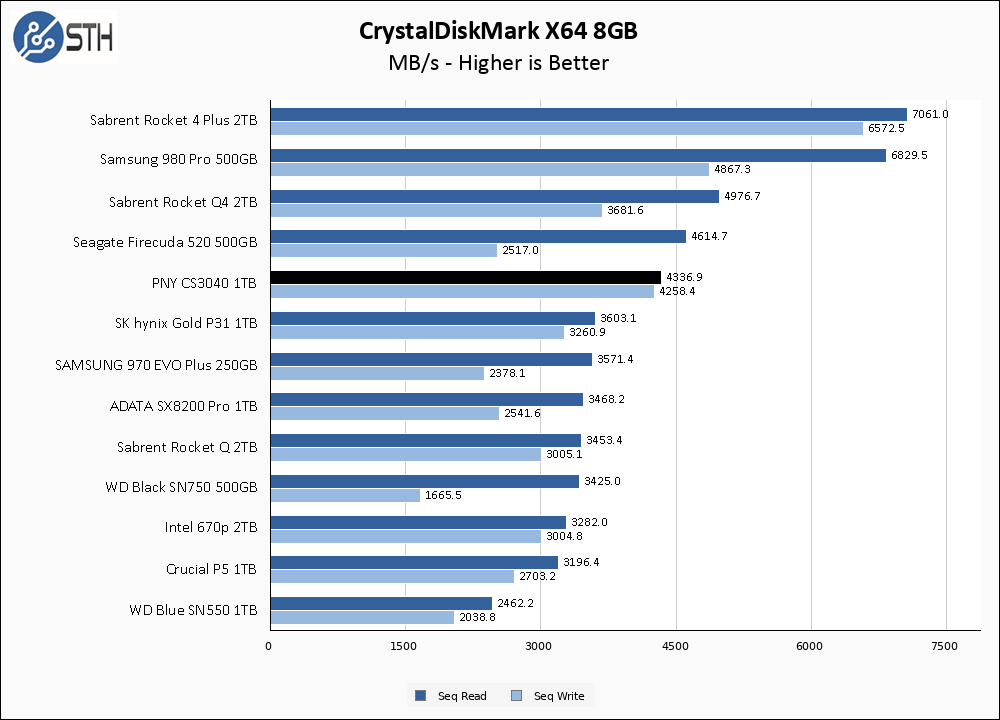
Moving to the larger 8GB, the write performance of the CS3040 1TB holds up very well. On the other hand, read performance loses another step and now even more significantly underperformance compared to the 5600MB/s rating.
ATTO Disk Benchmark
The ATTO Disk Benchmark has been a staple of drive sequential performance testing for years. ATTO was tested at both 256MB and 8GB file sizes.
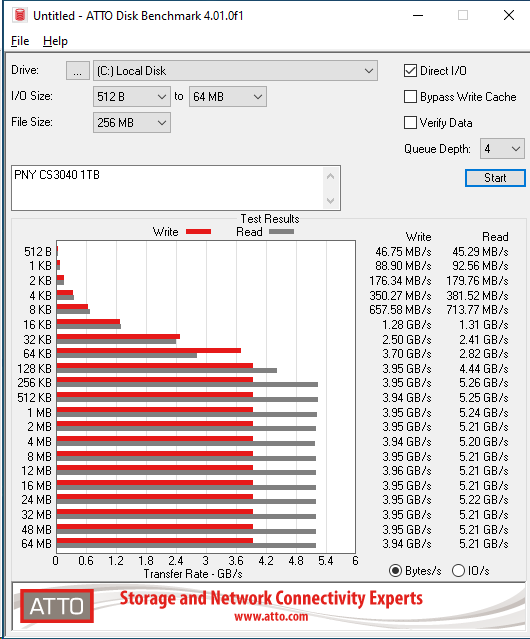
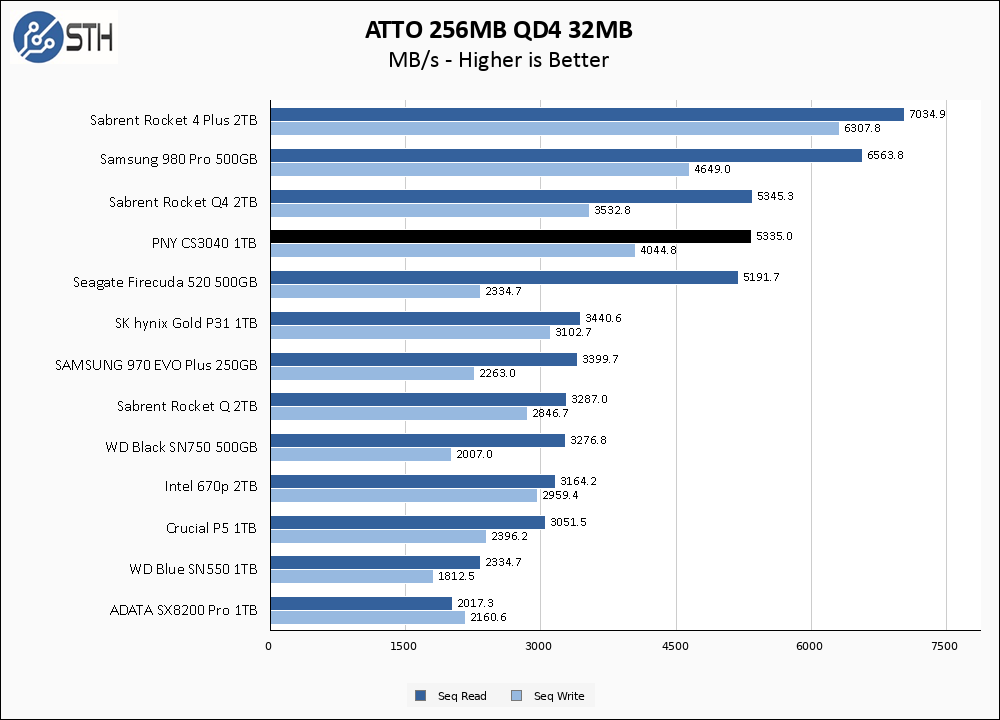
Read performance in ATTO is better than in CDM, with the PNY CS3040 1TB now close to its rated sequential read speed. Write performance takes a small dip but is still easily the strongest among the Phison E16 drives we have on our chart.
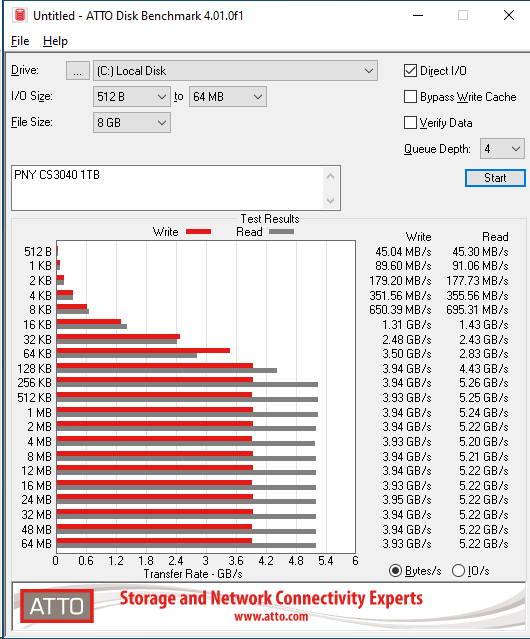
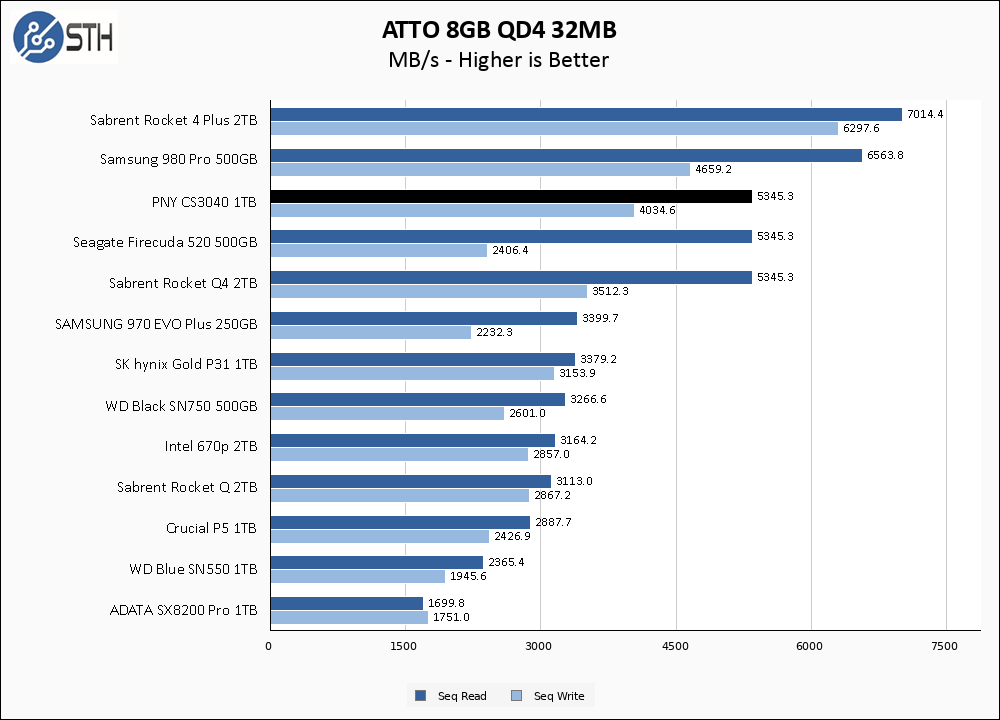
The larger test has a negligible effect on the PNY CS3040 1TB, which is always a welcome sight.
Anvil’s Storage Utilities
Anvil’s Storage Utilities is a comprehensive benchmark that gives us a very in-depth look at the performance of drives tested. This benchmark was run with both a 1GB and 8GB test size.
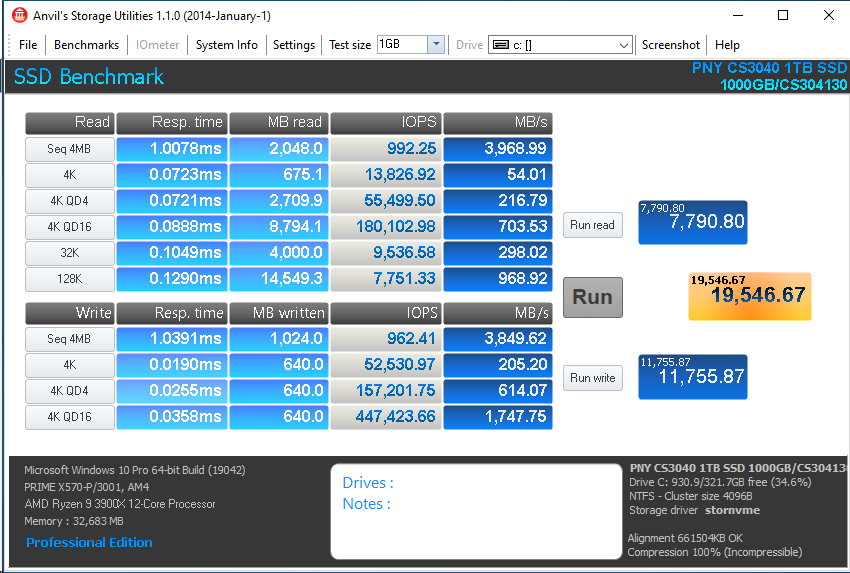
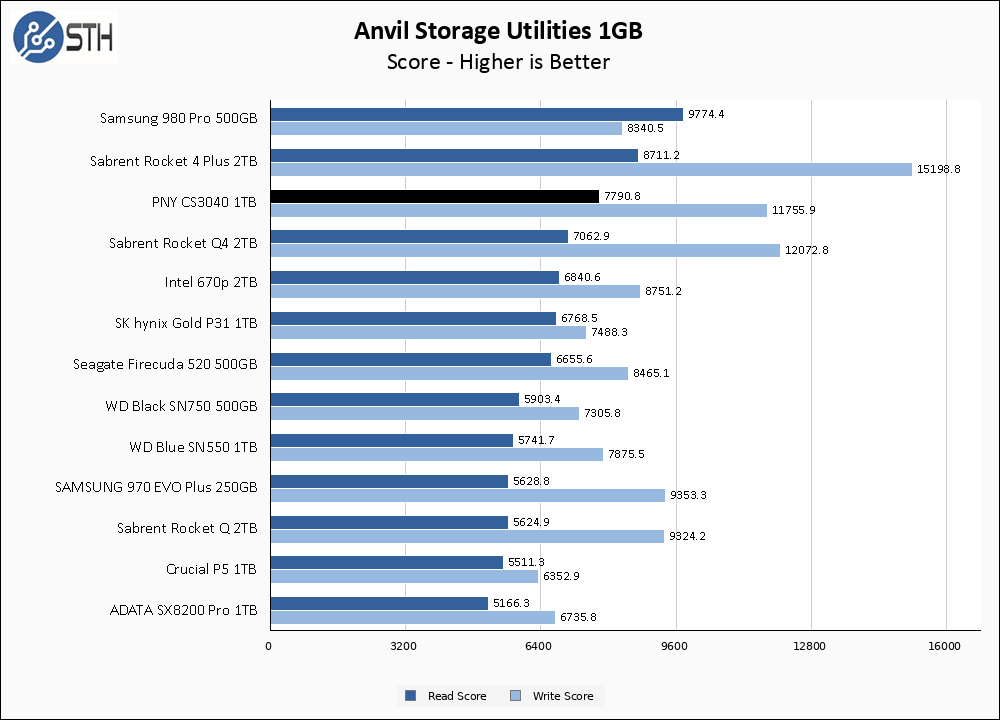
The Phison-based drives have always performed well in Anvil, and the PNY CS3040 1TB is no different in that regard. A good read score coupled with a great write score lands our test drive near the top of the pack.
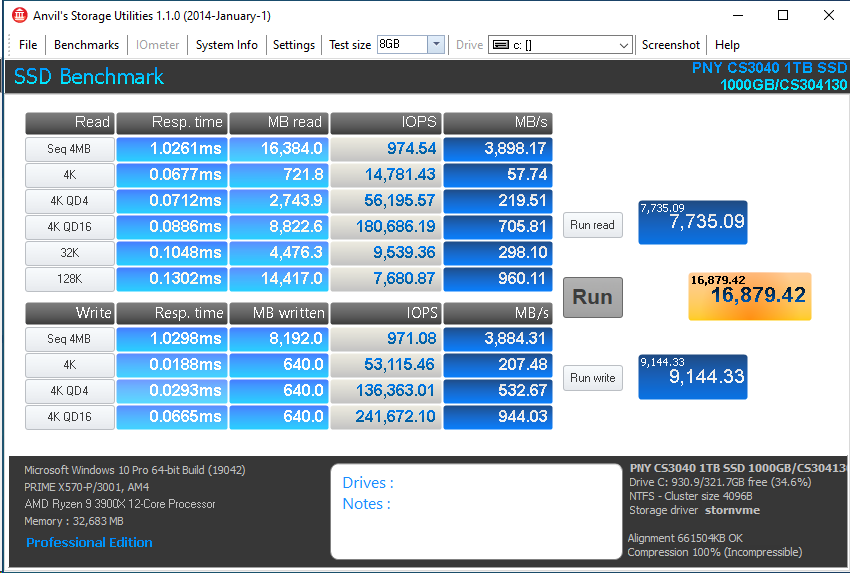
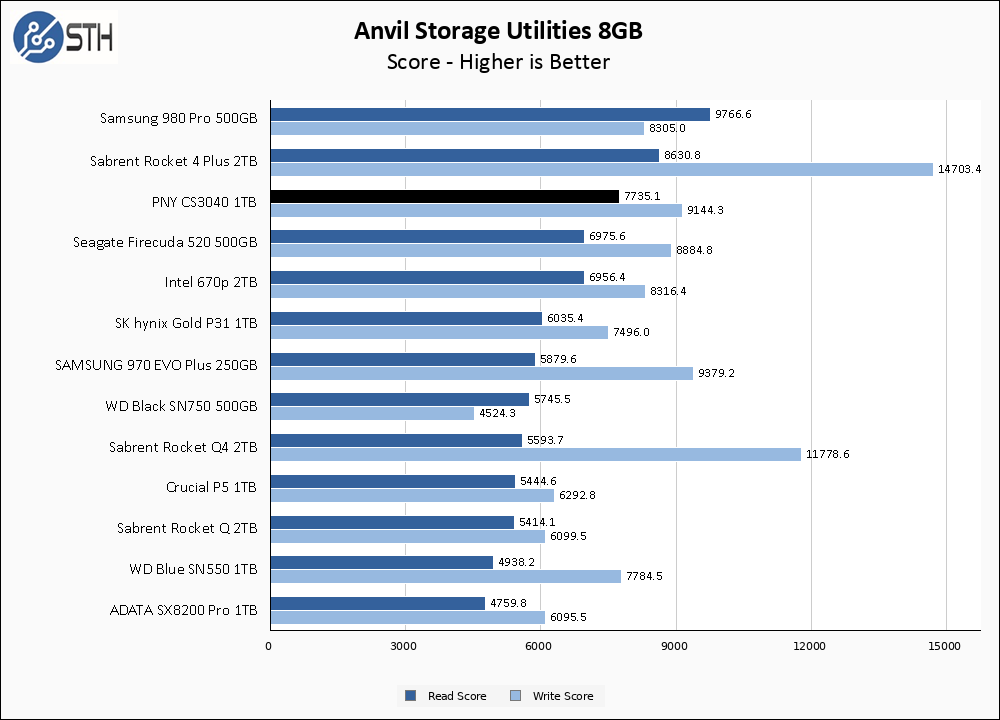
The larger 8GB Anvil test has a negligible impact on the read score for the PNY CS3040 1TB. The drive does lose some ground on write score, significantly more so than the other Phison E16 based drives.
AS SSD Benchmark
AS SSD Benchmark is another good benchmark for testing SSDs. We run all three tests for our series. Like other utilities, it was run with both the default 1GB as well as a larger 10GB test set.
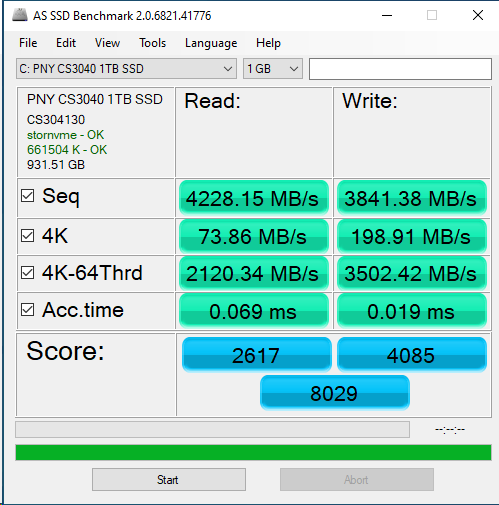
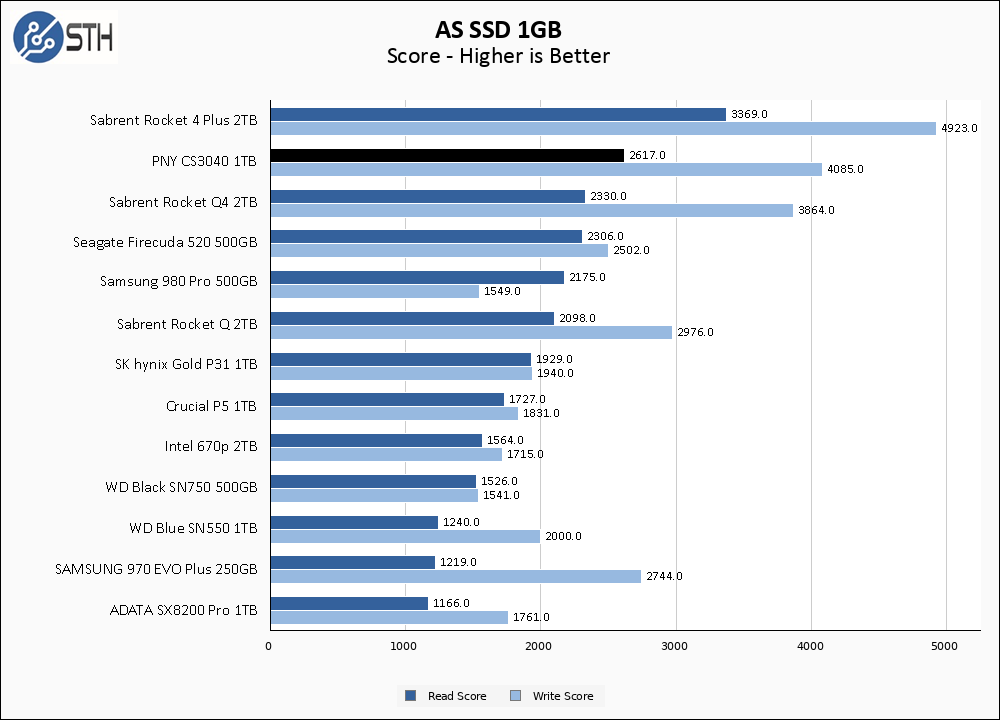
In AS SSD, the PNY CS3040 1TB puts in a great showing. Not only does the drive come second on our overall graph, but it manages to distance itself in read performance from even our other Phison E16 based drives like the Rocket Q4.
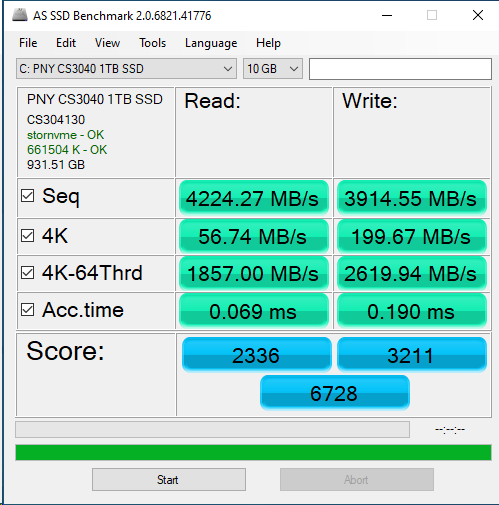
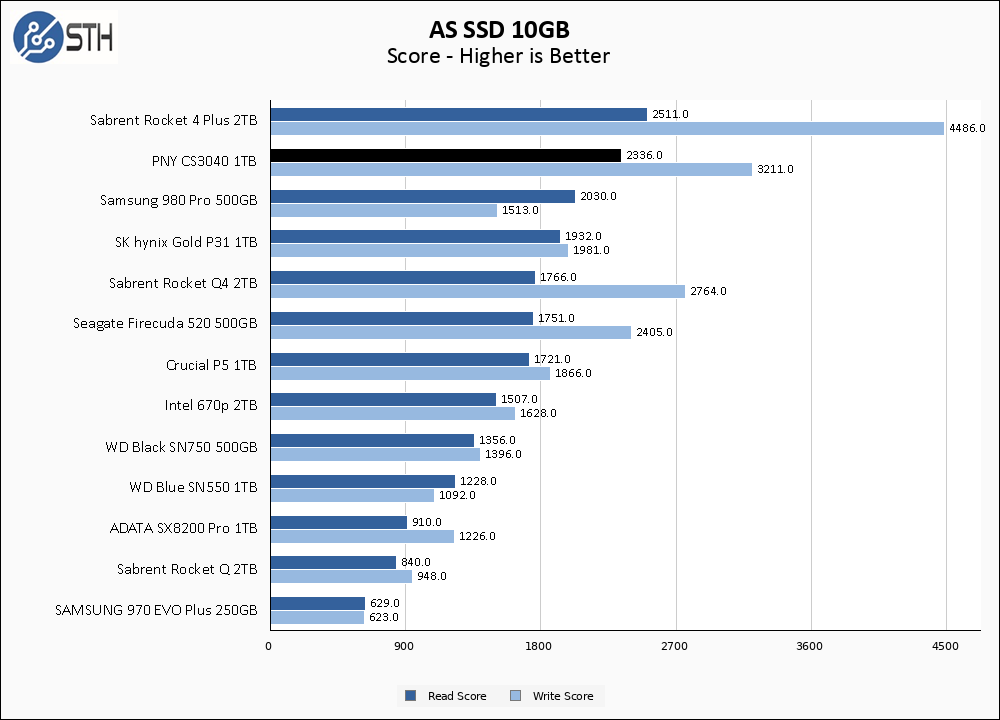
And in continued good news, the larger AS SSD test set has the CS3040 1TB holding strong and even somewhat closing the read score gap with the Sabrent Rocket 4 Plus drive. Compared to the other Phison E16 drives, the PNY model is clearly a step ahead.
SPECworkstation, direct comparisons, thermals, and our conclusion are up next.

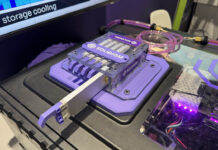
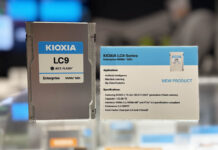
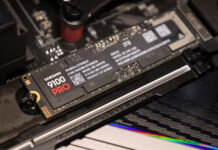
Looks like the 4TB must use QLC, because the longevity drops back to 900TBW from the 2TB’s 3600TBW, and is close to the 500GB’s 850TBW.